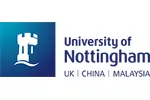

the United Kingdom
University of Nottingham| The award | How you will study | Study duration | Course start | Domestic course fees | International course fees |
|---|---|---|---|---|---|
| MSc | Full-time | 12 month | September | - | - |
This course aims to promote the importance of an integrated and multidisciplinary approach to study fundamental physiological aspects of human health and disease. This approach combines state of the art physiological and metabolic methodologies with relevant molecular biology approaches to answer questions of clinical relevance.
This is the only course of its kind in the UK and aims to achieve an effective learning environment, one which:
This course is aimed at (i) students with a background in Physiology, Biochemistry, Biomedical Sciences, Biology, Nutrition, Exercise Science and other related disciplines, (ii) graduates with work experience in health-related research groups in academia and industry, and (iii) health and exercise professionals who have interests in the physiology underlying health and disease.
The main topics covered by the course include muscle function and metabolism in health and disease, cardiovascular regulation in health and disease, cardiorespiratory physiology, biochemistry and nutrition in exercise, health and disease (including diabetes, obesity and cardiovascular disease), laboratory techniques, clinical pharmacology and neuroscience.
The students can expect to (1) develop an understanding of the fundamental physiological events underlying the maintenance of health and development of disease in humans, and (2) demonstrate familiarity with, and comprehensive appreciation of, laboratory techniques and methodologies used in Integrated Physiology.
Please note that our School attracts a number of capacity-building MRC and BBSRC quota PhD studentships every year for which prospective students would be considered as serious candidates after successful completion of the MSc in Integrated Physiology in Health and Disease.
View the MSc in Integrated Physiology in Health and Disease poster and leaflet for more information.
Key facts
Course Content
Students must take 6 compulsory modules covering the following topics: Nutrition in Health and Exercise, Muscle Physiology & Metabolism, Biochemistry and Nutrition in Disease, Cardiorespiratory Physiology, Laboratory Techniques, and Statistics & Research Methods. Students must also choose one from the following 2 optional modules: Medical Pharmacology or Clinical Neuroscience. In the summer, students undertake a laboratory-based research project in a topic related to the course content.
Course Structure
This programme requires students to accumulate 180 credits over 12 months of full-time study. In the autumn semester, students study 3 core taught modules to a value of 50 credits. In the spring semester, students study 5 taught modules to a value of 80 credits, of which 70 comprise core material and 10 optional material. Please note that a compulsory module on Laboratory Techniques, which accounts for 40 credits, spans over the autumn and spring semesters. A taught module on Statistics & Research Methods in Physiology takes place in the spring semester and is part of the compulsory element of this programme. In the summer, students undertake a research project, which accounts for 50 credits.
Assessments will be held at the end of the module or at the end of a semester. Assessment of each of the taught modules is determined by the module convenor and comprises of written examination and/or written reports of laboratory work or essays. The Research Project will be assessed by a written report in the form of a dissertation (max 15,000 words) and a Viva Voce taking place at the end of the 12-month study.
Contact University of Nottingham to find course entry requirements.
Below are some suggested courses at other providers that you may also be interested in:
Marketing Management - Digital Business Concepts Bachelor Degree
Fontys Economy Tilburg
Find out moreLeading Interprofessional Practice Education PG Cert
University of Derby Online Learning
Find out moreGraduate Diploma in Foundations of Canadian Law GDL
Osgoode Professional Development, York University
Find out moreInternational Business Management Professional Bachelor Degree
KdG University of Applied Sciences and Arts
Find out moreIf you do not meet the entry requirements for this course then consider one of these postgraduate preparation courses from another institution:
There are 579 other courses listed from University of Nottingham. A selection of these are displayed below:
Academic English and Study Skills Preparation programmes Master's Qualifying Programme
University of Nottingham
Find out moreAdditive Manufacturing and 3D printing (Centre for Doctoral Training) PhD
University of Nottingham
Find out moreJoin the StudyLink email list and never miss a chance to turn your study abroad dreams into reality!

Find out more about studying in the United Kingdom